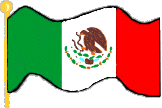¿Cuánto me das marinero?
This song clearly derives from the old Spanish romance of the sailor of which there are several versions. The story is always the same: a sailor falls into the sea, the devil offers to rescue him, the sailor offers to give all his riches (which can vary), the devil declines and asks for his soul. The sailor declines the devil's help.
¿Cuánto me das marinero?
How Much Will You Give Me Sailor?
Canción infantil
Children's Song
(Spanish)
(English)
¿Cuánto me das marinero,
cuánto me das marinero
porque te saque del agua,
Sí, sí,
porque te saque del agua?
Yo no te doy ni un centavo,
yo no te doy ni un centavo,
porque te saques del agua
Sí, sí,
porque te saques del agua.
Si no me das un centavo,
Si no me das un centavo,
Dame siquiera un tostón
Sí, sí, sí,
Dame siquiera un tostón.
How much will you give me sailor,
How much will you give me sailor,
To take you out of the water?
Yes, yes,
To take you out of the water?
I won't even give you one cent,
I won't even give you one cent
So that you'll get out of the water,*
Yes, yes,
So that you'll get out of the water.
If you don't give me one cent,
If you don't give me one cent,
At least give me a crouton,
Yes, yes, yes,
At least give me a crouton.
Notes
*Variant: "Porque me saques del agua" (For you to get me out of the water).
The version below can be found in Romancero general, Colección de romances castellanos anteriores al siglo XVIII by Agustín Durán, (1789-1862) first published circa 1830.
Mañanita de San Juan (Early in the morning on St John's Day)
cayó un marinero al agua. (A sailor fell into the water.)
¿Qué me das, marinero, ("What will you give me, sailor)
por que te saque del agua? (For me to take you out of the water?")
-Doyte todos mis navíos, ("I'll give you all my ships)
Cargados de oro y de plata. (Loaded with gold and silver.")
-Yo no quiero tus navíos, ("I don't want your ships)
ni tu oro ni tu plata. (Nor your gold or your silver.)
Quiero que cuando te mueras (When you die, I want you)
a mí me entregues el alma. (To give me your soul.")
-El alma la entrego a Dios, ("My soul I'll give to God,)
el cuerpo a la mar salada. (My body to the salty sea.")
*St John's Day is on June 24th.
Here is a slightly longer version from Joaquín Díaz in Revista de folklore.
Mañanita de San Juan (Early in the morning on St John's Day)
cayó un marinero al agua. (A sailor fell into the water.)
¿Cuánto me das, marinero, ("How much will you give me, sailor,)
porque te saque del agua? (So that I'll take you out of the water?")
- Dóite todos mis navíos, ("I'll give you all my ships,)
todo mi oro y mi plata, (All my gold and my silver,)
y a mi mujer que te sirva (And my wife to serve you)
y a mis hijas por esclavas. (And my daughters as your slaves.".)
-Yo no quiero tus navíos, ("I don't want your ships)
ni tu oro ni tu plata. (Nor your gold or your silver.)
Quiero que cuando te mueras (When you die, I want you)
a mí me entregues el alma. (To give me your soul.")
-El alma la entrego a Dios, ("My soul I'll give to God,)
el cuerpo a la mar salada. (My body to the salty sea)
y el corazón que me queda (And the courage that's left to me)
a la Virgen Soberana. (To the Sovereign Virgin.")
An almost identical version was collected in Badajoz province (Spain).
A few other versions have been collected by Pr. Sebastián Sosa Barroso in Lanzarote in the Canaries Islands, among which is this longer one:
El marinero y el diablo (The Sailor and the Devil)
A voces un marinero (A sailor was yelling out)
que el agua se lo llevaba (That the water was taking him away)
y el diablo desde una peña (And from a rock, the devil)
le dijo que qué le daba. (Asked him what he would give.)
Marinero le contestó (The sailor answered)
que le daba sus jardines (That he'd give his gardens)
y palacios cargaditos (And his palaces full)
de oro y plata (Of gold and silver.)
Y el diablo le contestó: (And the devil answered him,)
-Yo no quiero tus jardines ("I don't want your gardens)
ni palacios cargaditos (or your palaces full)
de oro y plata; (of gold and silver either;)
sólo quiero que al morir (I only want you, when you die,)
me entregues tu cuerpo y alma. (To give me your body and soul.")
Y el marinero le contestó: (And the sailor answered him:)
-Los brazos son para mi madre ("My arms are for my mother)
que siempre la están abrazando; (As they're always hugging her,)
las tripas para un colchonero (My innards are for a mattress maker)
para que haga un colchón de lana; (For him to make a wool mattress,)
los huesos para un campanero (My bones are for a bell ringer)
para que haga los badajos (For him to make clappers)
para las campanas, (For the bells,)
y el cuerpo y el alma para Dios (And my body and soul [are] for God)
que me crio de la nada. (Who raised me from nothingness.")
Y el marinero daba voces (And the sailor was yelling out)
y nadie le contestaba. (And nobody was answering him.)

Thanks!
Thanks and Acknowledgements
Translated by Monique with Lisa.

























